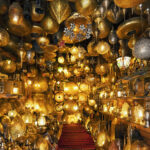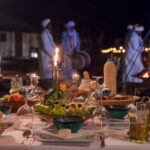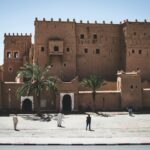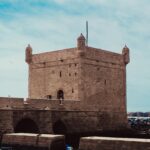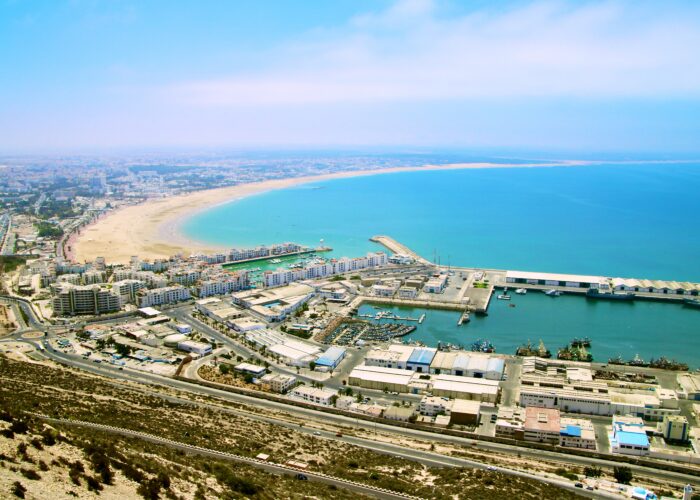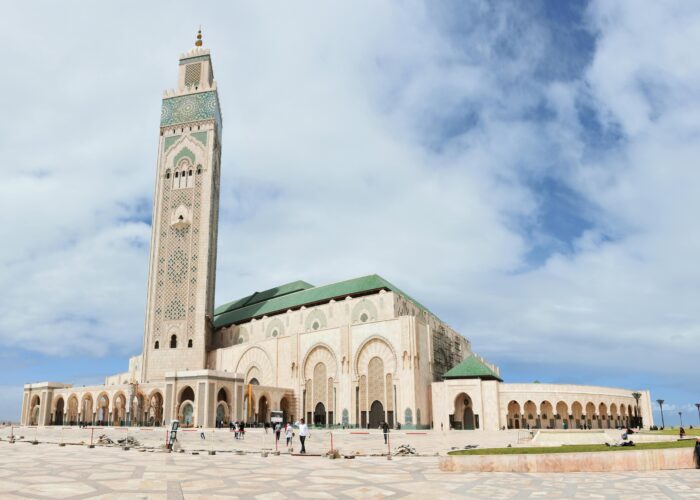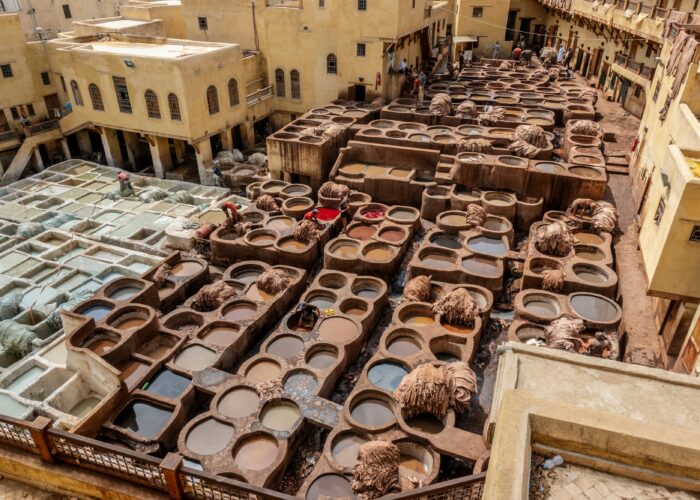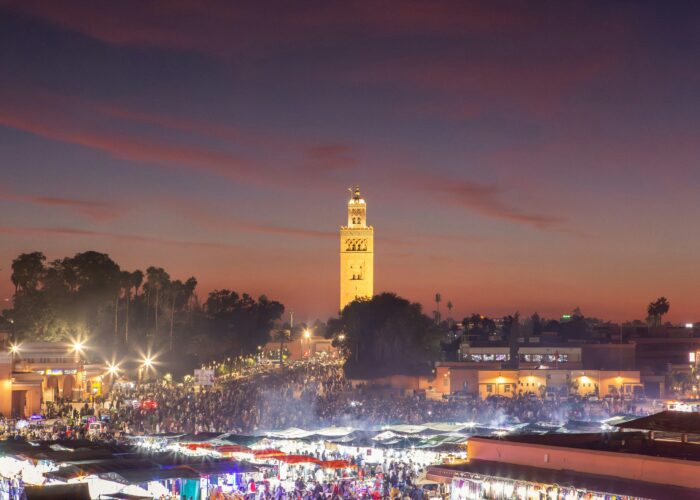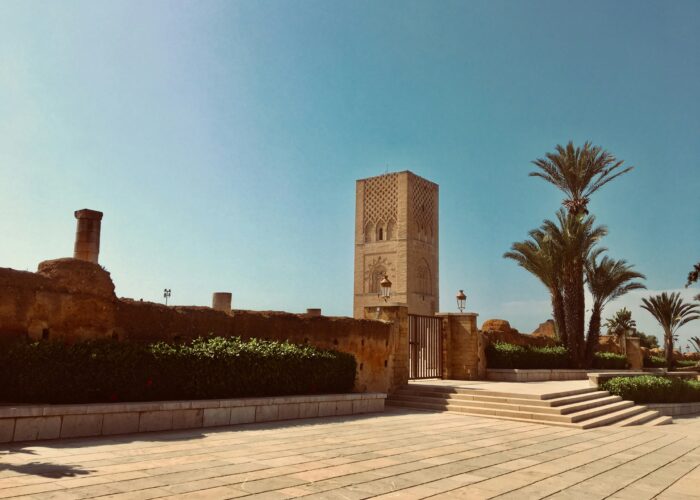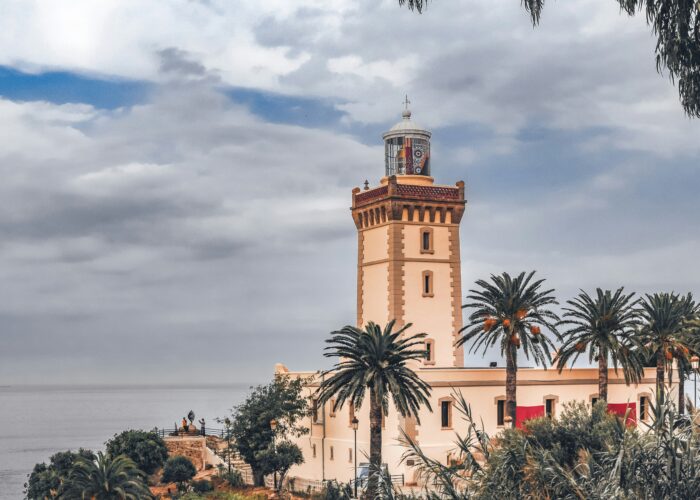Introduction: The Culinary Richness of Morocco
The culinary landscape of Morocco is a vibrant tapestry woven with diverse influences, including Berber, Arab, and Mediterranean traditions. This rich heritage not only defines Moroccan cuisine but also serves as a reflection of the country’s history and cultural interactions throughout the centuries. The emphasis on fresh, locally-sourced ingredients, aromatic spices, and intricate preparation techniques sets Moroccan cooking apart, making it a delightful experience for both the palate and the senses.
Food holds a sacred significance in Moroccan culture, serving as a cornerstone for social interactions and familial gatherings. Meals are often viewed as a time for connection, with families and friends coming together to share both food and stories. The communal nature of dining reveals the deep-rooted traditions of hospitality, where sharing dishes like tagines and couscous symbolizes warmth and kinship. In Moroccan society, inviting guests to partake in a meal is not merely a gesture; it is an essential expression of goodwill and friendship.
As one delves into the world of Moroccan cuisine, the prominence of spices and their unique blends comes to the forefront. Ingredients such as saffron, cumin, coriander, and cinnamon are paramount in creating the bold and exciting flavors that characterize Moroccan dishes. Each region boasts its specialties, with influences from local agriculture and historical trade routes contributing to the various culinary styles. From the bustling markets filled with colorful produce to the delicate pastries enjoyed during festive occasions, every aspect of Moroccan food culture tells a story.
This blog post invites readers to immerse themselves in the culinary richness of Morocco, particularly through engaging cooking classes. These experiences offer a hands-on opportunity to discover the beauty of traditional Moroccan dishes, and to learn the techniques that make this cuisine both unique and enjoyable. As participants explore the flavors and find a connection to the customs, they unlock a deeper appreciation for the Moroccan way of life.
Why Take a Cooking Class in Morocco?
Participating in a cooking class in Morocco offers an unparalleled opportunity for cultural immersion that extends beyond mere sightseeing. This hands-on experience allows travelers to learn traditional recipes directly from local chefs, fostering a unique connection to the community and its culinary heritage. By engaging in the preparation of iconic dishes such as tagine, couscous, and pastilla, visitors not only gain practical cooking skills, but also insights into the cultural significance and history behind these flavorful meals.
One of the most compelling aspects of cooking classes in Morocco is the chance to source ingredients from vibrant local markets. As participants navigate through stalls overflowing with spices, fresh produce, and artisanal products, they gain a deeper appreciation for Moroccan cuisine’s foundational elements. This interaction with local vendors enriches the experience, allowing participants to understand the importance of sourcing quality ingredients while supporting regional economies.
Moreover, the social aspect of cooking classes enhances their value. Engaging with fellow participants creates an environment ripe for sharing stories, recipes, and culinary techniques. This communal approach fosters lasting bonds and provides a platform for exchanging cultural perspectives. Cooking together encourages collaboration and teamwork, which is integral to Moroccan dining traditions, where meals are often enjoyed in a communal setting.
Beyond the tangible skills and knowledge gained, cooking classes in Morocco forge lasting memories. The ability to recreate traditional dishes at home serves as a delicious reminder of the journey taken and the friendships formed. Engaging with local chefs not only enriches travelers’ culinary repertoire but also deepens their understanding of Moroccan culture, making this immersive experience truly invaluable.
What Dishes Will You Learn?
Engaging in a Moroccan cooking class presents an exceptional opportunity to explore the rich tapestry of flavors and culinary traditions that define Moroccan cuisine. Participants can expect to learn to prepare iconic dishes that are not only foundational to the Moroccan diet but also beloved around the globe. Central to these classes is the timeless tagine, a slow-cooked stew typically prepared in a traditional earthenware pot, which bears the same name. The tagine, with its unique conical lid, allows for the melding of flavors through steaming, resulting in tender meats and aromatic vegetables infused with spices like cumin, coriander, and saffron.
Another staple that participants will likely master is couscous, often referred to as the heart of Moroccan meals. This versatile dish, made from steamed semolina grains, can accompany a variety of meats and vegetables or be enjoyed as a sweet treat topped with honey and nuts. The preparation of couscous is a communal affair, reflecting the sociable nature of Moroccan dining culture.
In addition to these signature dishes, cooking classes may also introduce participants to pastilla, a savory-sweet pie typically made with pigeon or chicken, nested between flaky layers of pastry and adorned with a dusting of powdered sugar and cinnamon. Furthermore, participants may prepare harira, a hearty soup flavored with lentils, chickpeas, and aromatic herbs, commonly enjoyed during Ramadan. Classes often include the creation of refreshing Moroccan salads, characterized by vibrant ingredients like tomatoes, peppers, and olives, which serve as delightful accompaniments to any meal.
Through the hands-on experience of creating these authentic dishes, participants will not only develop culinary skills but also gain an appreciation for the cultural significance embedded in Moroccan cooking.
Top Cities for Cooking Classes and What to Expect
Morocco, known for its rich culinary heritage, offers a variety of cities that host exceptional cooking classes. Among them, Marrakech, Fes, Essaouira, and Chefchaouen stand out as prime locations for culinary enthusiasts seeking immersive experiences. Each city offers unique flavors and traditional techniques, making each cooking class a distinctive adventure.
Marrakech, often referred to as the cultural heart of Morocco, provides a vibrant backdrop for cooking classes. Participants can expect to explore local souks, where fresh ingredients are sourced, and learn the art of preparing iconic dishes such as tagine and couscous. Classes commonly begin with a guided market tour, where instructors introduce attendees to local spices, herbs, and vegetables.
Fes, known for its UNESCO-listed medina, offers a more traditional cooking experience. Here, classes often include learning about ancient Moroccan cooking methods passed down through generations. Students can anticipate using traditional tools, including clay tagines, to create authentic regional dishes. The emphasis on preserving heritage continues to enhance the learning atmosphere.
Essaouira, with its coastal charm, offers a different culinary perspective, focusing on seafood alongside traditional Moroccan fare. Participants in Essaouira can also expect to enjoy the unique flavors of the Atlantic, along with guidance on how to incorporate these local ingredients into their dishes.
Lastly, Chefchaouen, known for its stunning blue buildings and laid-back ambiance, provides intimate cooking classes that often include shared meals with host families. These experiences create a warm, welcoming environment where participants can learn not just to cook but to appreciate Moroccan hospitality.
For first-time attendees, it is advisable to wear comfortable attire suitable for cooking. Bringing a notebook for taking notes and a camera to capture the culinary journey is also recommended. While many instructors speak English, familiarizing oneself with basic Arabic phrases can enhance the experience and foster connections with local chefs and family hosts.




